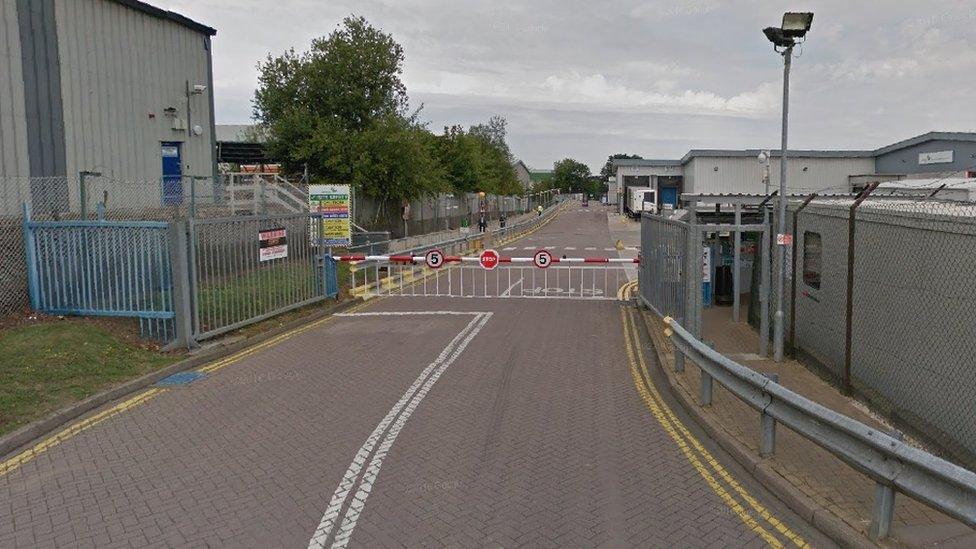Coronavirus: Repeat tests for Covid-negative Greencore workers
- Published
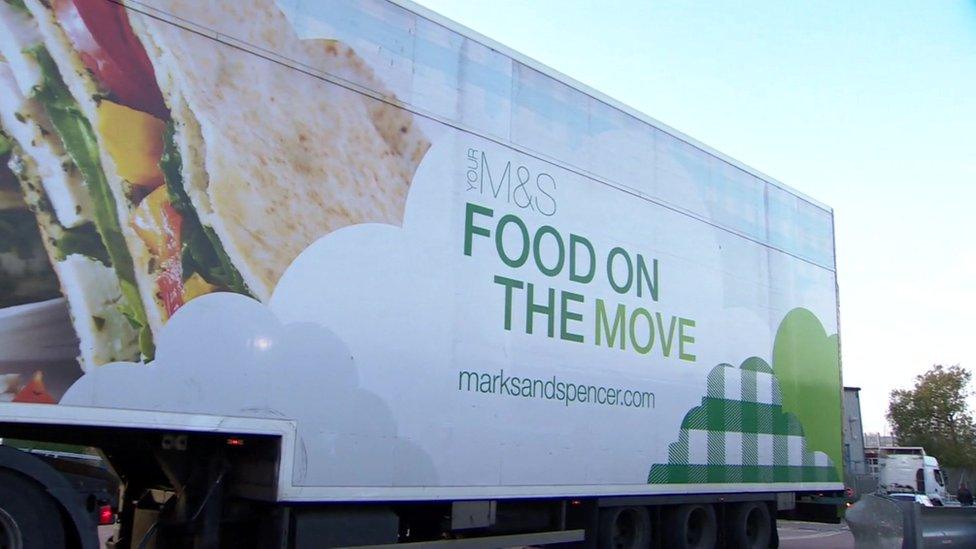
Greencore produces sandwiches for M&S at its factory in Northampton
Workers who tested negative for Covid-19 at a sandwich-making factory where hundreds of colleagues were found to have the virus are to be re-tested.
Almost 300 people tested positive at M&S supplier Greencore in Northampton.
The town has the highest number of new cases in England per 100,000 people.
The director of public health at Northamptonshire County Council, Lucy Wightman, said the tests were being repeated to make sure people "weren't incubating the virus" previously.
Mrs Wightman had announced 299 workers at the factory, which employs 2,100 people, had tested positive.
That figure has now been revised down to 287 "because of some duplicate tests".
The leader of Northampton Borough Council, Jonathan Nunn, called the outbreak a "huge disaster" for the town, which had already been identified as potentially facing a local lockdown.
In the week leading up to 14 August, Northampton saw 122.9 new cases per 100,000 population.
Mrs Wightman said Public Health Northamptonshire had considered closing the Greencore factory, but after consulting the Food Standards Agency and virologists had decided the risk to the general public was "extraordinarily low".
She said Greencore "prides itself" on how it deals with infections.
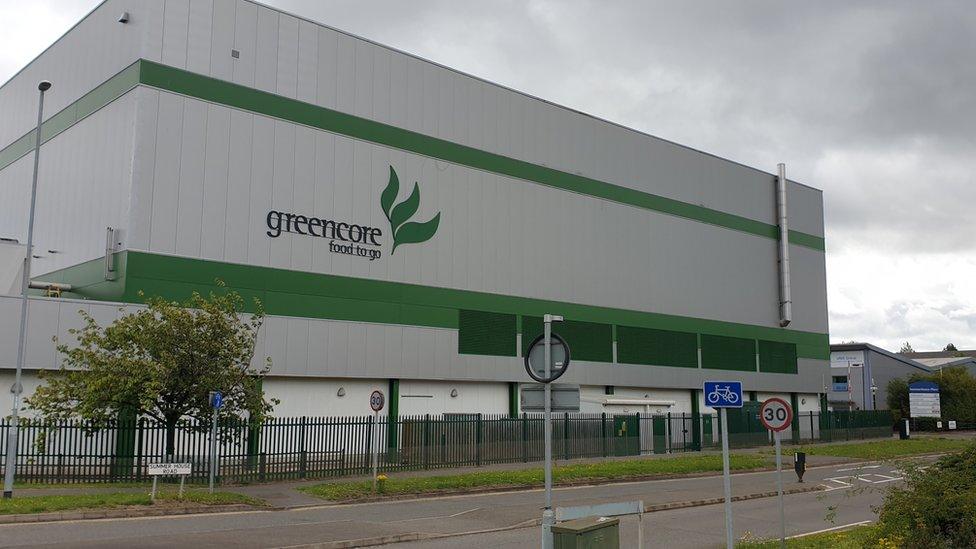
Lucy Wightman said Greencore workers who have tested positive are self-isolating
Mrs Wightman has been criticised for previously saying the outbreak was "about how people behave outside of Greencore, not at work".
She had mentioned car sharing and the number of Greencore employees who lived in single properties as reasons for the outbreak.
Save our Services Northampton said she had shifted "the blame on to the workers' shoulders and let employers and the Government off the hook".
In a statement, the protest group said many workers "cannot afford their own cars or houses and would most probably face disciplinary measures, for endangering food output, if they were late to work or miss shifts because of transport difficulties".
Mrs Wightman said it was "not about apportioning blame, but about helping workers and other members of the public to understand where transmission risks lie".
- Published14 August 2020

- Published13 August 2020
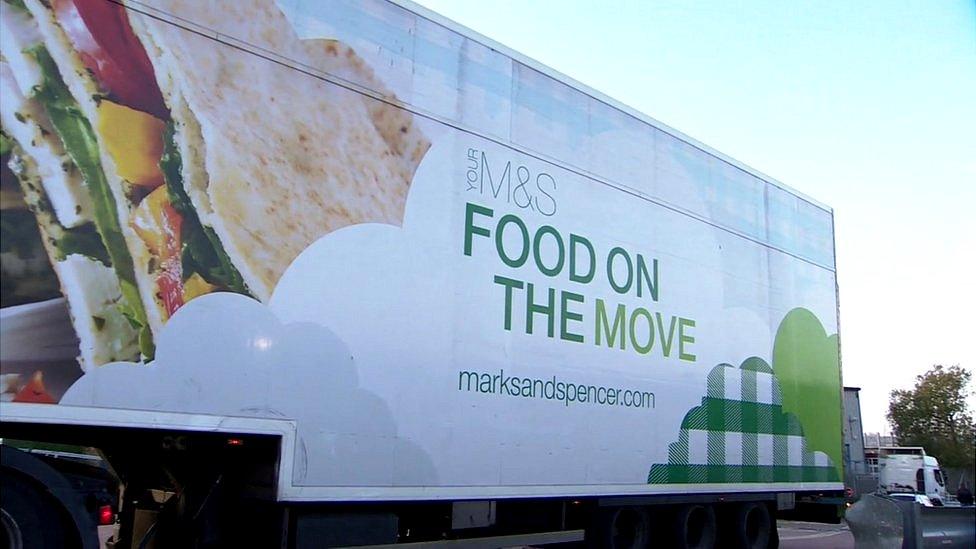
- Published7 August 2020
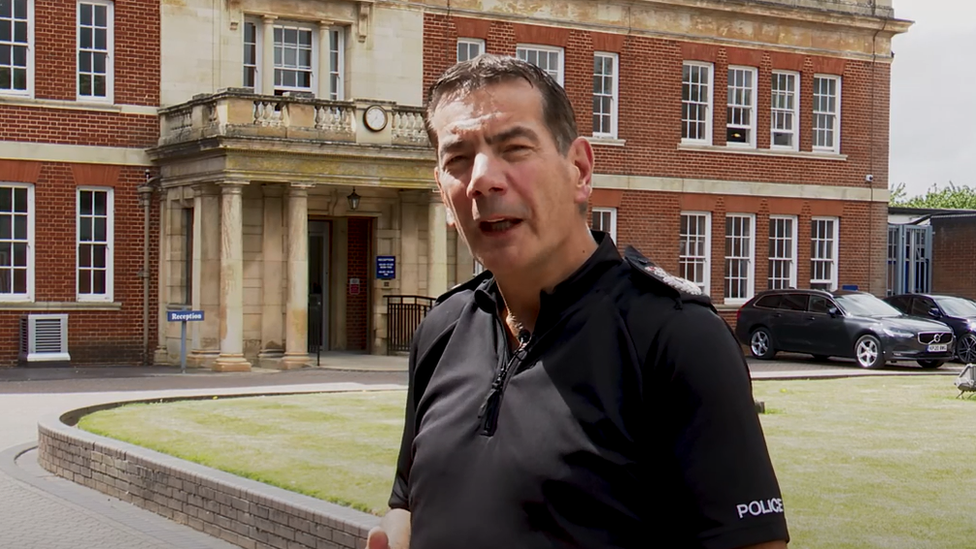
- Published24 July 2020
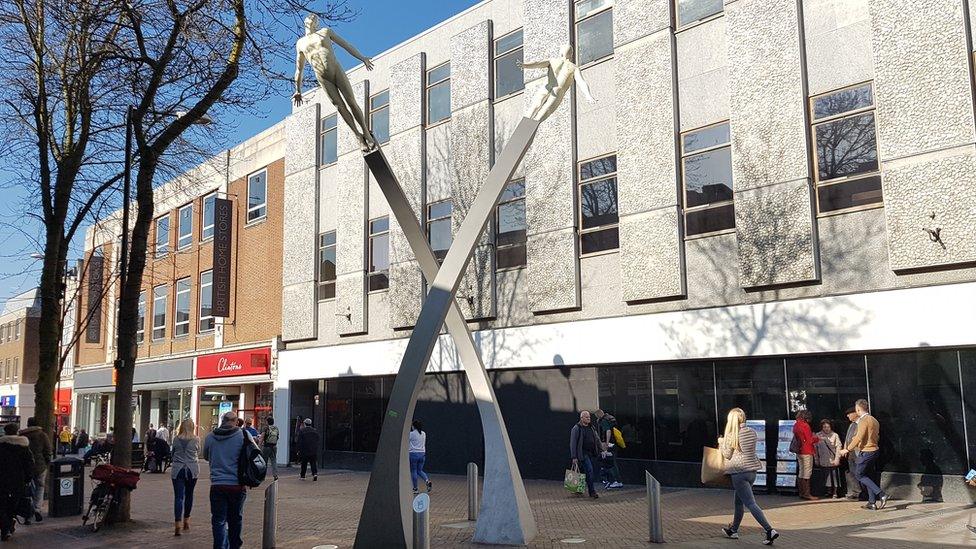
- Published4 May 2020
